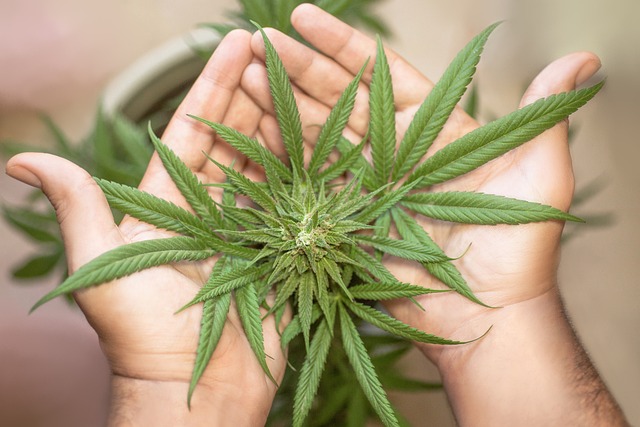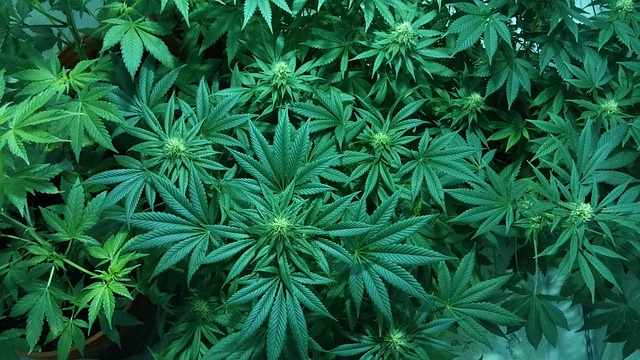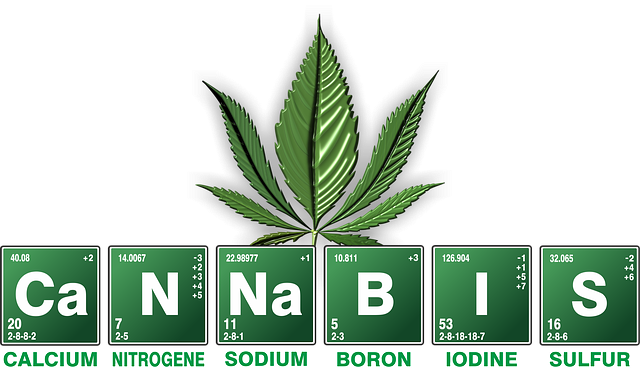THCA flower lab reports have provided valuable insights into the potency and therapeutic potential of this non-psychoactive cannabinoid precursor to THC. The reports confirm that THCA flower contains high levels of THCA and a rich profile of other cannabinoids and terpenes, which collectively contribute to the entourage effect. This synergistic interaction enhances the benefits of the THCA flower, making it potentially effective for various conditions such as chronic pain, anxiety, and neurological disorders. The detailed analyses from these lab reports are crucial for consumers and researchers, offering precise data on product composition and safety, and guiding informed decision-making regarding its consumption. For cultivators, these reports are indispensable tools for improving growing conditions to optimize THCA levels. Overall, the comprehensive information from THCA flower lab reports significantly contributes to the advancement of the cannabis industry by ensuring quality assurance and facilitating a tailored cannabis experience that aligns with personal preferences for both therapeutic and recreational use.
Explore the intricate world of cannabinoids with our in-depth article on THCA flower side efffect, a subject richly detailed through meticulous lab reports. Delve into the chemical composition that underscores its therapeutic potential, and learn how these findings can enhance your experience with this natural wonder. Join us as we uncover the raw truth behind the THCA flower’s efficacy and influence on well-being.
- Unveiling the Potency of THCA Flower Through Lab Reports: A Comprehensive Analysis
- The Chemical Composition and Therapeutic Potential of Raw THCA Flower
- Utilizing Lab Findings to Optimize the Experience with THCA Flower
Unveiling the Potency of THCA Flower Through Lab Reports: A Comprehensive Analysis

Laboratory analyses have shed light on the potency and potential benefits of THCA flower, a form of cannabis that precedes tetrahydrocannabinolic acid (THC) when heated. The lab reports for THCA flower are critical in understanding its composition, as they detail the concentration of THCA, other cannabinoids, and terpenes present. These analyses reveal that raw THCA flower contains significant levels of THCA, which, upon decarboxylation—a chemical process involving heat—converts to THC, the psychoactive compound known for its intoxicating effects. The lab reports also identify a rich profile of minor cannabinoids and terpenes, which may contribute to the entourage effect, enhancing the therapeutic properties of the flower. These findings are instrumental for consumers and researchers alike, as they provide a clear and objective understanding of what each THCA flower batch offers, ensuring safety and efficacy in various applications. The meticulous examination of THCA flower through lab reports thus underscores its importance in the cannabis industry, providing a basis for informed decision-making regarding its consumption and potential medicinal use.
The Chemical Composition and Therapeutic Potential of Raw THCA Flower

Laboratory analyses of THCA flower, which contains the non-psychoactive cannabinoid tetrahydrocannabinolic acid (THCA), have revealed a complex chemical composition that holds significant therapeutic potential. THCA is the precursor to THC, the psychoactive component found in cannabis, and is gaining attention for its own health benefits. According to THCA flower lab reports, this cannabinoid exhibits anti-inflammatory, antibacterial, and neuroprotective properties. These findings are instrumental in understanding how THCA might serve as a therapeutic agent for various conditions, including chronic pain, anxiety, and neurological disorders. The presence of other cannabinoids such as CBD and CBC, along with terpenes like myrcene, pinene, and limonene, enhance the entourage effect, potentially magnifying the beneficial effects observed in THCA flower lab reports. This synergistic interaction between cannabinoids and terpenes can offer a broader spectrum of therapeutic applications than any single compound alone, making THCA flower a subject of growing interest in both scientific research and medical applications.
Utilizing Lab Findings to Optimize the Experience with THCA Flower

Laboratory analyses play a pivotal role in optimizing the experience with THCA flower, offering precise insights into its cannabinoid profile and potency. THCA flower lab reports meticulously detail the concentration of tetrahydrocannabinolic acid (THCA), which is the raw form of THC, the psychoactive compound found in cannabis. These reports are crucial for consumers and manufacturers alike, as they ensure that the product meets the desired efficacy and safety standards. The analysis also includes terpene profiles, which contribute to the unique aroma and flavor of the flower, as well as its potential therapeutic effects. By leveraging these detailed lab findings, cultivators can refine their growing techniques to produce THCA flowers with higher concentrations of desirable cannabinoids and terpenes, ultimately enhancing user satisfaction and experience. Additionally, these reports guide consumers on what to expect from the product in terms of its effects and the appropriate dosage, thereby promoting a safe and enjoyable consumption experience. Consistently, the integration of THCA flower lab reports into the cultivation process is not just a step towards quality assurance but also a pathway to personalizing the cannabis experience for consumers seeking specific therapeutic or recreational outcomes.
In conclusion, the exploration into the potency and therapeutic promise of THCA flower, as detailed through meticulous lab reports, reveals its significant potential. The chemical analysis underscores the unique composition that sets raw THCA flower apart from its decarboxylated counterpart, offering insights into optimizing its use for various wellness applications. As evidenced by the data collected, understanding the intricate relationship between THCA and its transformative properties is crucial for those looking to harness its benefits effectively. The findings from these lab reports provide a robust foundation for further research and development in the realm of cannabinoid therapy, highlighting the importance of scientific validation in the use of cannabis-derived products.
